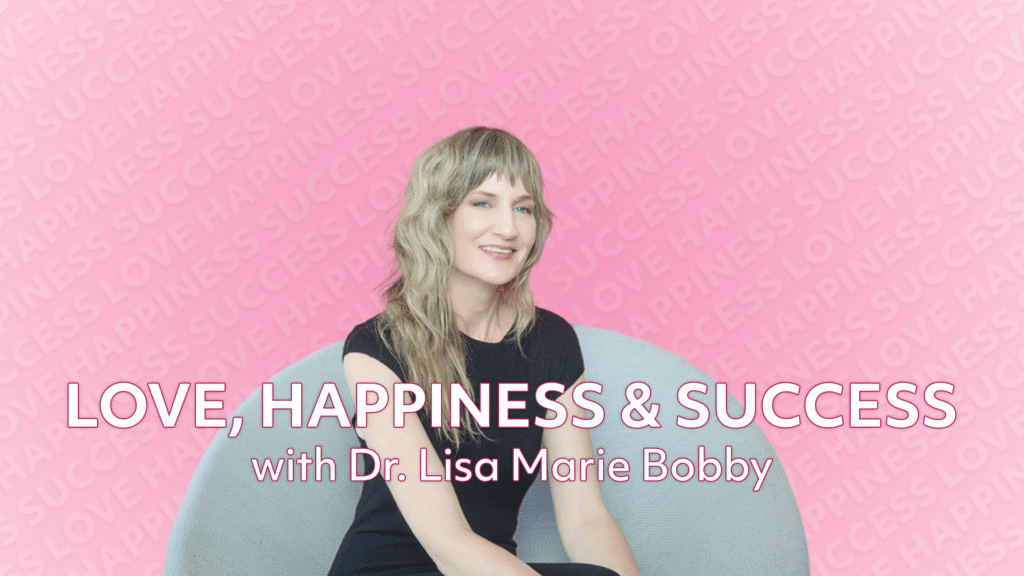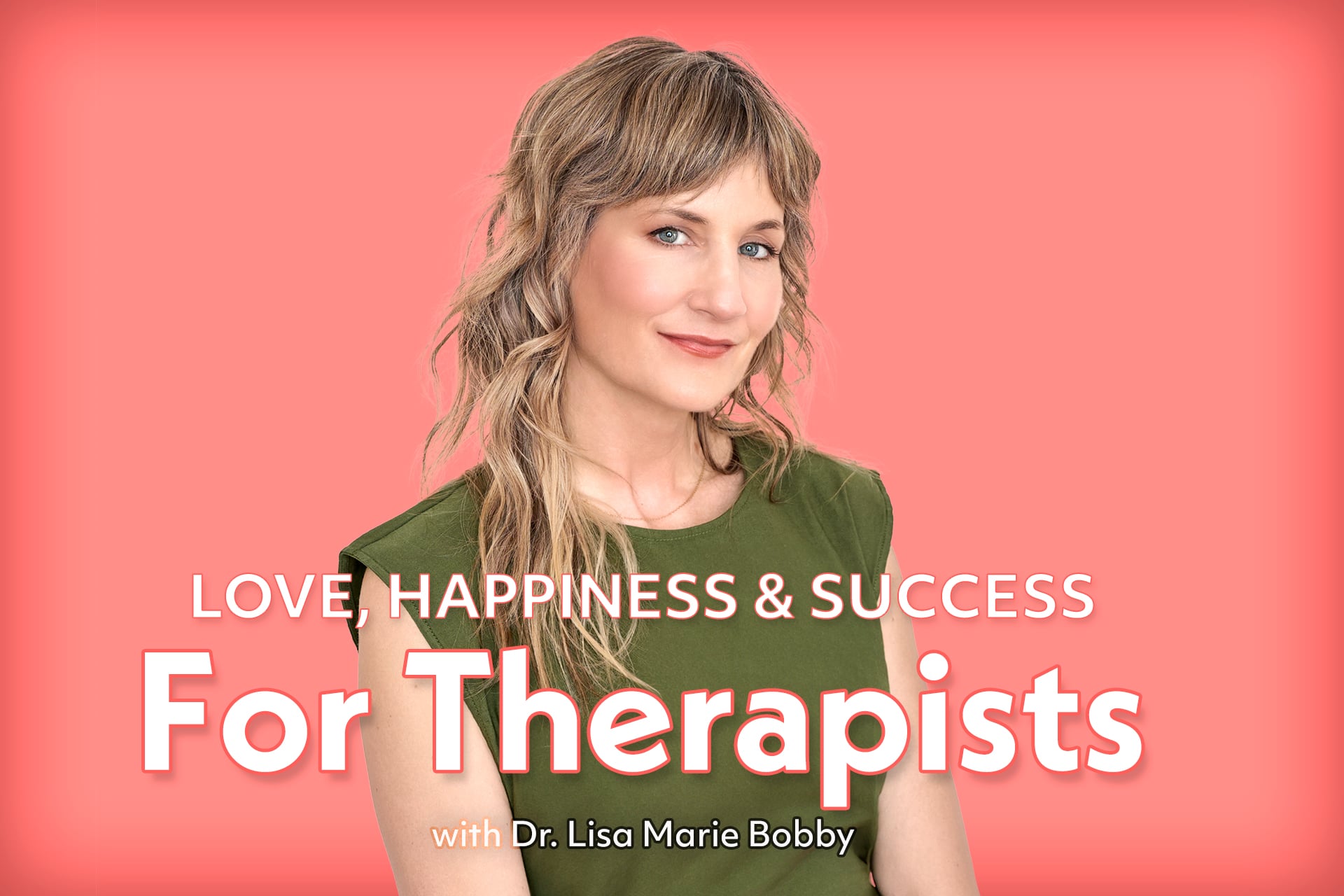What Is an LMFT?
If you are in the market for a couples counselor, you may have noticed that some of the clinicians who offer couples counseling have the letters “LMFT” after their names. So, what is an LMFT? And how is working with an LMFT different from working with a mental health counselor who offers couples counseling?
Although you will find many non-MFT clinicians who are willing to see couples — including LPCs, PhDs, PsyDs, and LCSWs — only LMFTs have education and training that specifically focuses on improving relationship systems. Unfortunately, other types of therapists tend to approach couples counseling using frameworks that were designed for individual clients, which is not helpful, and in some cases, can even make relationship problems worse.
As a longtime marriage counselor myself, I can tell you that the approach of a marriage and family therapist is unique, and that it makes a big difference in the outcomes clients experience. I’ve heard horror stories from clients who got involved with the wrong kind of “couples counselor” before they came to Growing Self, and I would like to help you connect with a professional who can actually help you. Read on to learn about what an LMFT is, what working with an LMFT is like, and how you can find a good couples therapist who understands relationship systems, and how to improve them.
LMFT Meaning
An LMFT is a Licensed Marriage and Family Therapist. They’re sometimes referred to as “marriage counselors,” but they offer more than counseling for married couples.
An LMFT may help couples communicate better, deepen their connections, resolve conflict, build their families, lay the foundation for marriage, or get on the same page about the future of their relationships. They may also work with individual clients, especially those who wish to build emotional intelligence and other relationship skills, as well as with larger family systems.
What sets LMFTs apart from other types of therapists is their focus on relationship systems rather than on individual dysfunction or treating mental illness. They are trained to understand how people are impacted by their relationships, how they impact others, and how they can make changes that have positive ripple effects throughout the entire system.
Grow Together
Schedule a Free Consultation Today.
MFT Training and Experience
All LMFTs have a strong foundation in relationship-specific counseling. First, they must earn a Master’s or Doctoral degree in Marriage and Family Therapy or a related field. Before graduating from their program, they will complete hundreds of hours of supervised sessions working with couples and families.
Once an MFT earns their degree, they still need to earn their license. To do so, they must spend thousands of hours working with couples and families while being supervised by an experienced LMFT. During this period, their credentials may be LMFTA (Licensed Marriage and Family Therapy Associate), MFTC (Marriage and Family Therapist Candidate), or AMFT (Associate Marriage and Family Therapist), depending on their location.
These pre-licensed marriage and family therapists are still highly educated and experienced in providing couples therapy. In fact, they have a much stronger foundation for working with couples than fully licensed individual therapists, including the ones with a “Dr.” before their names. If the cost of couples counseling is a concern, working with an early-career MFT can be a great option, as they sometimes offer lower rates.
After an MFT completes their supervised hours, passes their state’s exam, and becomes fully licensed, they may also be required to complete a certain number of hours of continuing education each year, depending on which state they’re in. This ensures that Licensed Marriage and Family Therapists remain on top of the latest research and evidence-based practices in their field.
Mental Health Counselor vs. Marriage and Family Therapist
Other types of mental health counselors, like LMHCs, LPCs, PsyDs, or LCSWs, receive training that is very different from that of MFTs. Marriage and family therapists are trained to focus on relationship systems, rather than individual dysfunction, and that focus is what makes working with an MFT unique.
For example, if a couple came to a marriage and family therapist because they were fighting all the time and wanted to find better ways to resolve conflict, the MFT would try to understand the ingredients that both partners were putting into their relationship system, why those ingredients are creating the conflict, and how both people could adjust their ways of being to make the entire system healthier.
The MFT would explore the deeper roots of the conflict — like unhealed wounds, broken trust, or how the couple’s expectations, core beliefs, or attachment styles may be interacting — and then help both partners make shifts that fundamentally change the way they’re experiencing each other. The MFT’s point of view would be holistic, taking into account how both partners are creating their relationship system together, and where they each have opportunities to create positive change.
Doing Couples Counseling with a Mental Health Counselor
Meanwhile, if this same couple unwittingly landed on the couch of an individually-focused mental health counselor who offers “couples counseling” services, that counselor would likely begin by investigating which one is “The Partner with ‘The Problem.’” They would listen to the couple with the goal of rooting out the mental health issue or dysfunction that is leading to the problems in the relationship, and then gear their sessions toward treating that dysfunction, rather than treating the relationship system itself.
The mental health counselor might decide that the problem is one partner’s “anger issues.” If so, they would probably focus on teaching anger management techniques, rather than exploring the ways that the anger makes sense in the context of the relationship.
Or, the mental health counselor might decide that one partner needs treatment for depression, rather than realizing that, for many people, living in an unhealthy relationship system can look an awful lot like being depressed.
Another common tendency is to view the root issues as one partner’s leftover baggage from childhood, and prescribe an indefinite course of talk therapy that’s very focused on the past. While this will probably generate some interesting insights, it won’t make a dent in changing how the relationship feels and functions.
These individual counselors are well-meaning. These same approaches can be lifesaving when applied to individual clients — but for couples who need support improving their relationships, they just don’t work. Unfortunately, individual mental health counselors don’t know what they don’t know, and it can lead couples counseling to being a gigantic waste of time and money.
In fact, taking an individual-therapy approach with couples can sometimes make relationship problems worse. The “Partner with the Problem” will likely feel blamed, pathologized, and invalidated by the couples counselor. Meanwhile, the other partner will be deprived of opportunities to explore the impact that they are having on their relationship system, and where they have the power to make changes that will lead to better results. After a few months of “couples counseling” with an individual counselor, many couples believe they’ve tried everything and it just didn’t work. The next stop is often a breakup or a divorce, which is a sad outcome and one that could be prevented by getting the right kind of help.
Can an MFT Diagnose?
In addition to being trained to work with relationship systems, marriage and family therapists are also trained to diagnose and treat mental health conditions. They may work with people who are experiencing mood disorders, ADHD, addiction, and other diagnoses, especially within the context of their relationships and/or family systems.
This kind of work can help the person’s partner or family members deal with the impacts of the diagnosis while maintaining their own wellbeing, while also helping the client with the diagnosis manage their symptoms and how they’re showing up in their relationships. A growing body of research shows that for certain disorders, marriage and family therapy can be more effective than individual therapy alone.
What Does a Marriage and Family Therapist Do?
A marriage and family therapist helps people improve the quality of their relationships, using evidence-based approaches to counseling. These approaches may include the Gottman Method, Emotionally Focused Couples Therapy, Narrative Therapy, Cognitive Behavioral Therapy, and others.
What happens in counseling with an MFT depends entirely on the client’s needs and goals. Some common concerns that MFTs can help address include:
- Fixing communication issues
- Resolving conflict
- Improving emotional and sexual intimacy
- Healing after betrayal
- Repairing trust
- Rebalancing shared responsibilities
- Making decisions about the future of the relationship
- Helping couples manage finances together
- Building healthier family dynamics
- Increasing feelings of security in relationships
- Navigating a breakup or divorce
- Building healthy co-parenting relationships
The marriage and family therapists at Growing Self also practice relationship coaching, which is a more action-oriented approach to relationship growth work that’s focused on real-world results. Relationship coaching with an MFT can be a great option for clients who want to improve communication, learn how to be better partners for each other, and attain their shared vision for their lives together.
Working with an LMFT
If you are interested in connecting with a skilled, knowledgeable relationship expert who has the training and experience to help you create real change in your relationship, a marriage and family therapist is the way to go. While there may be some individually-trained therapists with the skills to practice effective couples counseling, you won’t have to guess if you choose to work with an LMFT.
And if you would like to be matched with one of the talented, effective marriage and family therapists on my team at Growing Self, I invite you to schedule a free consultation.
With love,
Marriage Counseling Questions | Couples Therapy Questions
If you’re considering getting involved in marriage counseling, couples therapy, or relationship coaching you probably have questions! Get your marriage counseling questions answered, right here.
Relationship Advice
Our relationship experts have tons of free, helpful relationship advice on numerous topics to support you both on your journey of growth together. View our relationship advice.
How Healthy Is Your Relationship?
Take our free relationship quiz to discover your strengths and growth opportunities, and get expert recommendations.
When To Get Marriage Counseling?
Was that just a yucky fight? Or is your relationship really in trouble? Here’s how to tell when to get marriage counseling.
What To Expect From Marriage Counseling
Learn what to expect from marriage counseling, from your first free consultation to the triumphant “graduation” from couples therapy.
Relationship Coaching vs. Couples Therapy
What’s the difference between relationship coaching vs couples therapy? Learn about both approaches, and which is right for you.
How to Find a Marriage Counselor
Not all marriage counselors are the same. Getting involved with a bad one can be a disaster. Here’s how to find a good marriage counselor…
Pre Marriage Counseling
Couples counseling before marriage is not the same thing as premarital counseling. Many couples need to grow together before they can move forward.
How Long Does Marriage Counseling Take?
You shouldn’t be in marriage counseling for years. Learn the average length of marriage counseling, depending on your situation, and your relationship goals.
How Marriage Counseling Works
Marriage counseling works, but how? Learn how marriage counseling works, and how the process can help you grow, together.
Does Couples Therapy Work?
Couples who successfully work through rough patches come out stronger than ever before. If you’re wondering, “Does couples therapy work?” read this article for the inside scoop.
Can We Do Marriage Counseling Online?
Online marriage counseling can be incredibly convenient and effective — but not always. Learn when online marriage counseling is the best bet, and when it’s a bad idea…
Can You Do Long-Distance Couples Therapy?
Yes, we provide long-distance couples counseling from all over the world through secure, easy, three-way online video.
Does Insurance Cover Marriage Counseling?
Insurance can pay for marriage counseling (aka, family therapy), but only sometimes. Learn when insurance covers marriage counseling, and when it won’t.
How Much is Marriage Counseling?
Getting expert help for your marriage can be the best, most life-changing decision you ever make. How much do couples therapy and marriage counseling cost? Get all the details, here.
Gift Relationship Help
If you have a loved one who is struggling in their relationship, you can help them get help by “gifting” couples counseling or coaching. Here’s how…
Discernment Counseling For Couples
Before marriage counseling can work, both partners need to want it to work. Discernment counseling helps you resolve ambivalence, and get clarity.
Why Evidence-Based Therapy Matters
Marriage counseling can be a huge waste of time if your counselor doesn’t practice evidence-based approaches to marriage counseling. Here’s why…
Online Couples Therapy
We offer Denver couples therapy and Denver marriage counseling as well as online couples therapy. Learn about our online couples therapy services.
Our Relationship Services
We offer premarital counseling, sex therapy, perinatal counseling, parent coaching, affair recovery, blended family counseling, financial therapy for couples, and more. Learn about all our couples counseling services.
Meet our Relationship Experts
Growing Self relationship experts are marriage and family therapists with specialized training and experience in effective, evidence-based approaches to help couples grow, together. Meet our team of relationship experts…
The Best Marriage Counseling
Curious to hear what others have to say about their experience with “the best marriage counselor?” Read their stories…
Free Resources, For You.
Our experts are incredibly generous and have put together an entire library of free resources and actionable advice to support you on your quest for Love, Happiness, and Success. View our blog + podcast.
More Questions? Let’s Talk.
We’re available by phone, email, and chat, and happy to answer any of your questions personally. Get in touch, anytime.
Start Couples Counseling or Coaching
Ready to begin marriage counseling, couples therapy, or relationship coaching with Growing Self? Start by scheduling a free consultation meeting with the expert of your choice.




